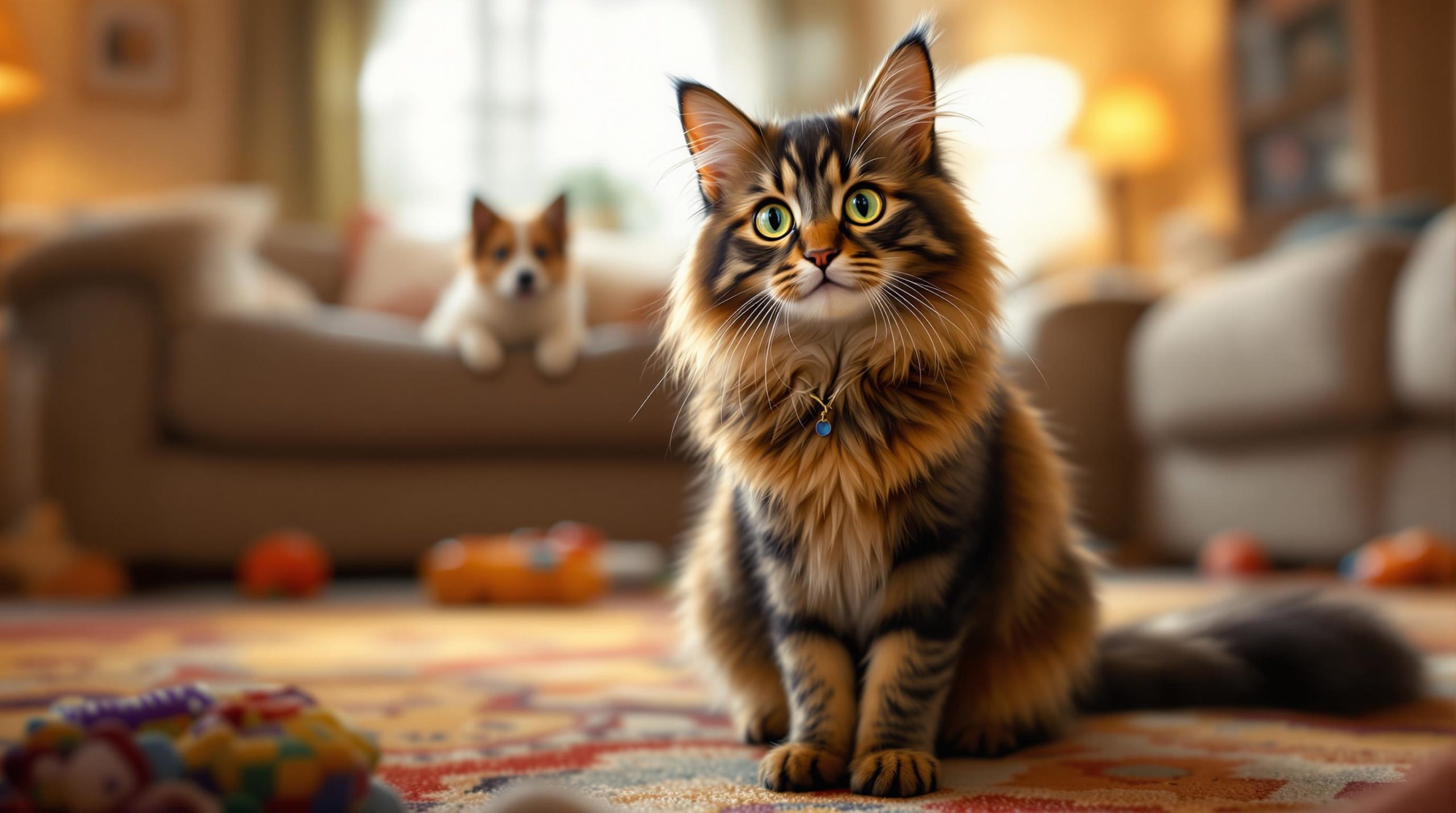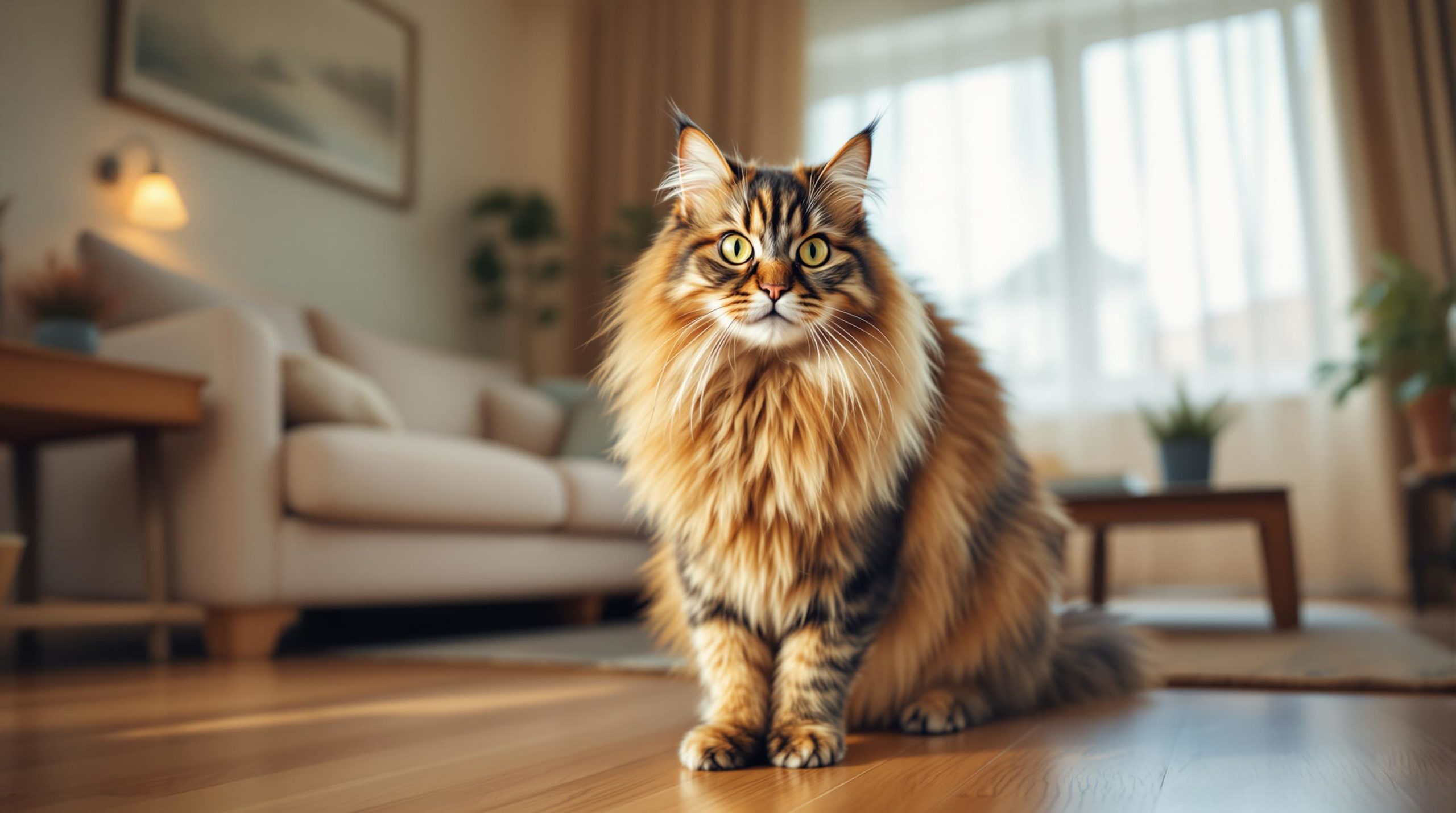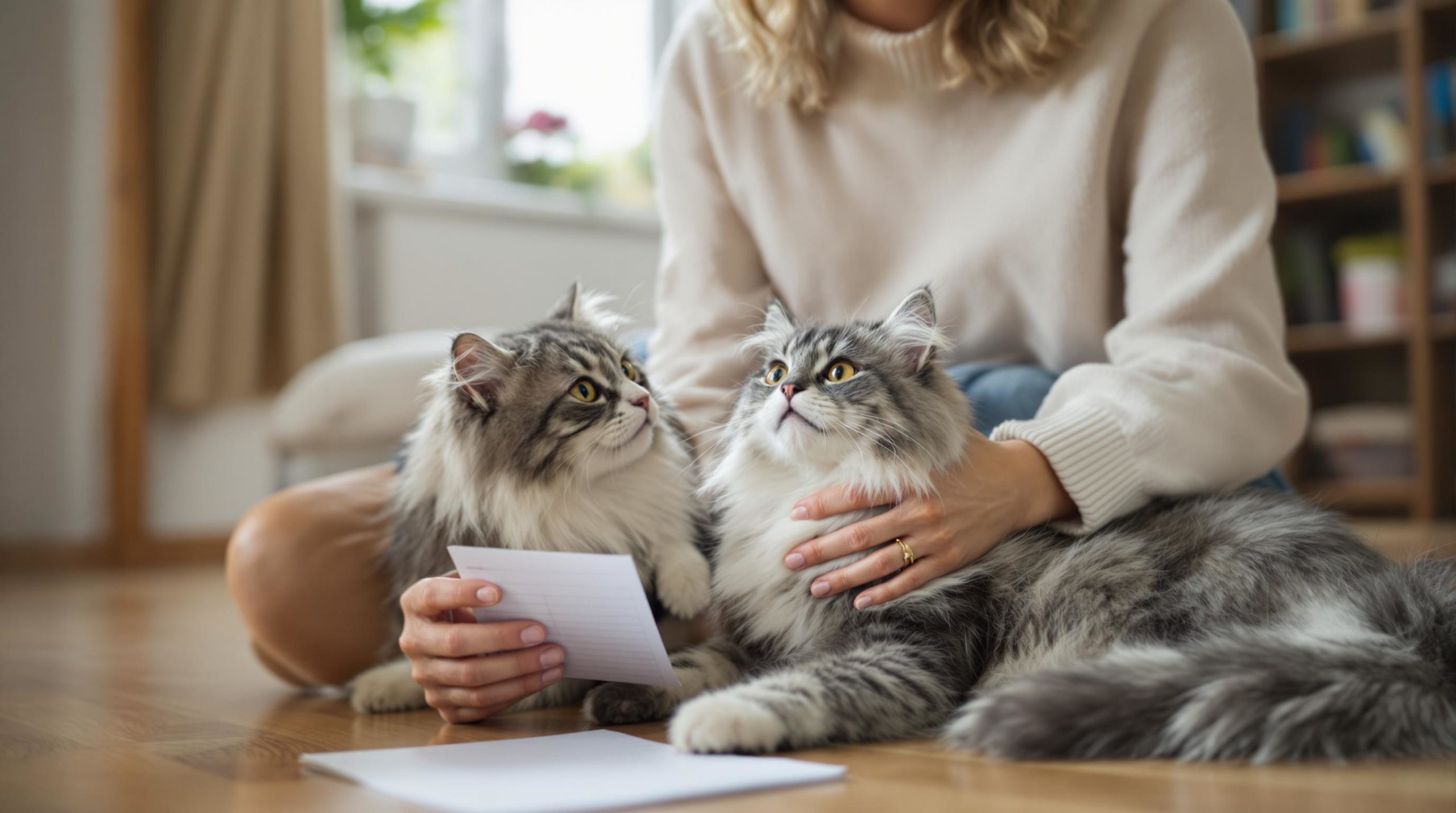exploring the causes of hissing in your maine coon cat

Ever wondered why your gentle giant Maine Coon suddenly hisses like a tiny dragon? It’s not about rage or outright aggression but more about complex communication and nuanced emotions. Maine Coons, known for their regal yet affectionate nature, use hissing as a critical signal when they feel overwhelmed, threatened, or in discomfort. This vocalization might puzzle many owners who associate it purely with hostility, but understanding the often subtle triggers behind a hiss can unlock a whole new level of connection and care for your furry companion.
From fear to frustration, and even playful boundaries to health issues, the reasons behind your Maine Coon’s hissing are varied. Joining insights from Feline Behavior Solutions and Cat Whisperer experts, this guide dives deep into the astonishing layers of Cattitude Experts’ wisdom to provide the best Maine Coon Care advice available. Perfect for owners and enthusiasts keen to create pawsitive vibes with their majestic cats, these revelations offer practical knowledge and whisks of Meow Mindfulness to boost your feline relationship.
Find out what triggers the hiss in your furry friend, learn how to respond with Whisker Wisdom, and discover how Furry Friends Insights can help you turn the “Hiss No More” moments into peaceful coexistence and Purrfect Understanding.
Understanding Fear and Threat Response: The Primary Causes of Hissing in Maine Coons
Hissing stands as a primal feline signal indicating fear or a sense of threat rather than simple anger. A Maine Coon may hiss when it perceives danger, whether that threat is real or imagined. This response is nature’s way of creating space, warning potential threats to keep their distance without escalating to physical confrontation.
This instinctive reaction manifests in multiple daily scenarios, including but not limited to:
- A sudden approach by strangers or unfamiliar people.
- Attempts to grab or handle the cat when it is hiding or resting.
- Introduction of new animals or changes in the home environment.
- Loud, unpredictable noises such as vacuum cleaners, thunderstorms, or fireworks.
Respecting your Maine Coon’s signals during these moments is essential. Pushing interaction while your cat is hissing due to fear can erode trust and heighten stress. Instead, create a calm, safe environment where your cat feels secure. Offering cozy hideaways and consistent routines can mitigate fear-induced hissing.
| Trigger | Context / Example | Owner’s Response |
|---|---|---|
| Stranger Approaches | Visitor enters house unexpectedly | Allow cat to observe from a distance, do not force interaction |
| Handling During Rest | Trying to pick cat up while resting | Wait until cat initiates contact |
| New Animal Introduction | Arrival of a new dog or cat | Gradual introductions with separated spaces |
| Loud Noise | Vacuum or fireworks near cat | Provide safe hiding places and reduce noise exposure |
Understanding these dynamics is a core part of Purrfect Understanding and a proven way to cultivate Pawsitive Vibes at home. Engaging with your Maine Coon through gentle observation leads to a lasting bond rooted in trust and respect.

Recognizing Pain or Discomfort as Hidden Causes Behind Your Maine Coon’s Hissing
Occasionally, a Maine Coon’s sudden hissing may signal physical discomfort rather than social displeasure. Cats are masters at hiding pain; hissing during petting or grooming can be a subtle cry for help. Understanding this aspect can make the difference between timely veterinary intervention and missed health warnings.
Common medical causes associated with hissing due to pain or discomfort include:
- Arthritis or joint pain, particularly in older Maine Coons.
- Dental issues causing gum or tooth sensitivity.
- Injury-related pain like cuts, abscesses, or skin inflammation.
- Digestive troubles such as constipation or urinary tract infections.
Watch for accompanying signs:
- Withdrawal or hiding more than usual.
- Reduced appetite or changes in eating habits.
- Decrease in self-grooming or changes in coat quality.
- Vocalizations other than the hiss, such as growling or yowling.
| Symptom | Possible Cause | Recommended Action |
|---|---|---|
| Hissing during petting | Arthritis / Joint Pain | Visit vet for pain assessment and treatment |
| Aggressive reaction when mouth area touched | Dental problems | Schedule a dental checkup with vet |
| Withdrawal and reduced grooming | Underlying illness or infection | Urgent veterinary consultation |
Early detection is crucial. The role of Furry Friends Insights shines here, helping owners pinpoint subtle distress signs often overlooked. Immediate vet visits preserve Maine Coon Care quality, ensuring these gentle giants maintain their loving temperament without suffering in silence.

How Overstimulation and Social Boundaries Lead to Hissing in Maine Coons
While Maine Coons are famously affectionate, even the friendliest cats have limits. Overstimulation is a common trigger for hissing, occurring when petting or playing crosses a sensory threshold. This can be puzzling, especially since these cats adore human interaction but quickly communicate their boundaries when overwhelmed.
Recognizing Signs Before Hissing
- Tail Twitching or Lashing: The tail is a powerful communicator of a cat’s mood.
- Flattened Ears: Indicating irritability or unease.
- Dilated Pupils: A sign of overstimulation or agitation.
- Sudden Muscle Tension: Preparing to either flee or defend.
Respecting these precursors is key to maintaining a peaceful relationship. Prolonged petting focusing on a single spot, especially near the base of the tail, often triggers hisses. Shorter, varied petting sessions are recommended to keep Pawsitive Vibes thriving.
Territorial Behavior and Resource Guarding
Maine Coons also hiss to assert dominance or protect their valued resources. This is especially relevant in multi-pet households where competition over food bowls, litter boxes, or resting places can escalate into a hiss-fest.
- Guarding favorite sleeping spots or perches.
- Defending access to preferred toys or play areas.
- Reacting to an intruding pet near their food or water bowl.
- Displaying dominance when a new pet arrives home.
| Situation | Possible Trigger | Solution |
|---|---|---|
| Hissing at other pets near food | Resource guarding | Provide multiple feeding stations and supervise meal times |
| Hissing during playtime | Overstimulation | Limit session length and alternate toy types |
| Hissing around favorite resting spot | Territorial behavior | Offer duplicate comfortable spaces |
Owners looking to deepen their Whisker Wisdom over their cat’s social cues should consistently monitor interactions between pets and gradually introduce newcomers. Creating an environment rich in vertical spaces and multiple essential resources aligns with top Maine Coon Care practices and mitigates tension.
Stress, Anxiety, and Change: Hidden Triggers for Hissing in Your Maine Coon
Maine Coons are intellectually and emotionally sensitive creatures. The slightest upheaval in routine or environment can produce signs of anxiety, with hissing as a vocal expression of their unease. Changes such as moving to a new home, adding a baby to the family, or even rearranging furniture can unsettle a cat who cherishes routine.
Common stress-induced triggers include:
- Introduction of unfamiliar smells or animals.
- Sudden loud noises and chaotic household activity.
- Altered daily routines or feeding times.
- Absence or replacement of a favorite human or companion pet.
Managing this stress involves patience plus environmental and emotional care. Tools like Feliway diffusers deliver calming pheromones, promoting tranquility. Additionally, maintaining consistent feeding and play schedules nurtures Meow Mindfulness, fostering less anxious and more confident cats.
| Cause | Trigger Example | Action To Reduce Stress |
|---|---|---|
| New Household Member | New baby or another pet | Provide secluded areas and gradual introduction |
| Environmental Changes | Moving house or new furniture | Maintain familiar bedding and scent items |
| Routine Disruption | Irregular feeding or playtime | Keep a predictable daily schedule |
Many owners underestimate the cognitive and emotional faculties of their Maine Coons. Understanding the subtle emotional landscapes behind hissing turns frustration into a chance for better Purrfect Understanding and stronger bonds.
How Socialization and Hormonal Changes Affect Hissing in Maine Coons
Two additional essential factors shaping hissing behavior in Maine Coons are socialization history and hormonal influences. Cats not adequately socialized during their critical early weeks may struggle with trust, often reacting with fear-based hisses. Likewise, unneutered or unspayed cats can exhibit hormonally driven territorial or aggressive hissing, complicating interactions.
Socialization Importance
Kittens exposed routinely to humans between 2 to 7 weeks of age develop greater confidence and reduce fearful responses later. Conversely, under-socialized cats display mistrust and frequent defensive behaviors like hissing.
- Slow introductions to new people and environments help build confidence.
- Positive reinforcement via treats and toys encourages approachability.
- Avoid forcing contact or sudden movements during interactions.
Hormonal Influence on Hissing
Unneutered males especially tend to be territorial and reactive, often vocalizing with aggressive hisses when other cats or strange animals appear. Female Maine Coons nursing kittens also hiss protectively to guard their young.
- Spaying or neutering reduces territorial instincts and calms behavior.
- Monitoring pet interactions and limiting exposure to stressors minimizes aggression.
- Providing escape routes and safe zones helps diffusing tension.
| Factor | Effect | Management Tips |
|---|---|---|
| Under Socialization | Frequent fear-driven hissing | Gradual exposure and positive reinforcement |
| Unneutered Males | Territorial aggression, hissing around other cats | Spay/neuter and provide calm environment |
| Maternal Instincts | Defensive hissing to protect kittens | Offer space and avoid forced contact |
Deepening Whisker Wisdom around these elements of Maine Coon personality and biology enhances every owner’s toolkit. For those encountering persistent behaviors, consulting with Cattitude Experts or a professional specializing in Feline Behavior Solutions ensures tailored approaches to resolving tension and encouraging harmony.
Frequently Asked Questions about Maine Coon Hissing Explained
| Question | Answer |
|---|---|
| Is hissing always a sign of aggression in Maine Coons? | No, hissing usually signals fear, discomfort, or a warning. It’s a communication tool rather than outright aggression. |
| How can I tell if my Maine Coon’s hissing is due to pain? | If hissing suddenly occurs during petting or handling, especially if combined with withdrawal or loss of appetite, consult a veterinarian promptly. |
| What is the best way to respond when my Maine Coon hisses? | Respect their boundaries: give them space, avoid forcing interaction, and identify triggers carefully. Gradual encouragement builds trust. |
| Can spaying or neutering reduce hissing? | Yes, it often lowers hormonal aggression and territorial behavior, reducing triggers for hissing in many cats. |
| How do I help my Maine Coon adjust to new pets to prevent hissing? | Introduce new pets slowly, provide separate resources, and monitor interactions. Patience and space help build peaceful coexistence (learn more). |